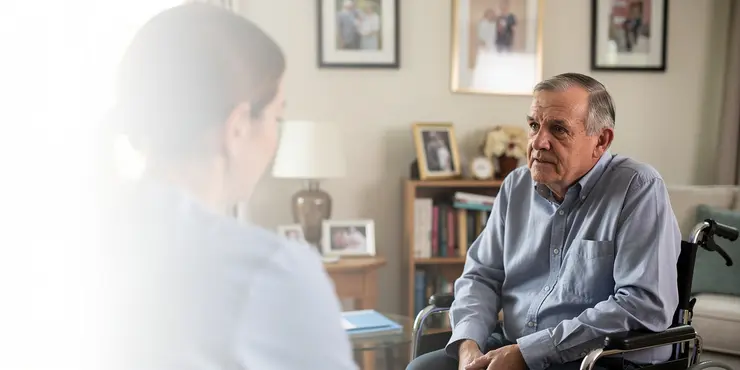
Find Help
More Items From Ergsy search
-
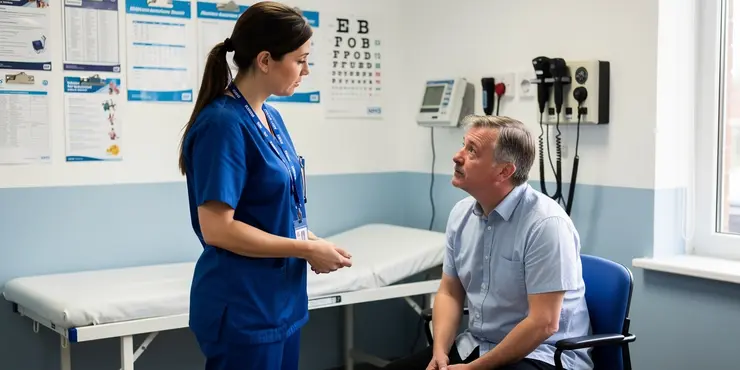
What is motor neurone disease?
Relevance: 100%
-
Are there different types of motor neurone disease?
Relevance: 97%
-
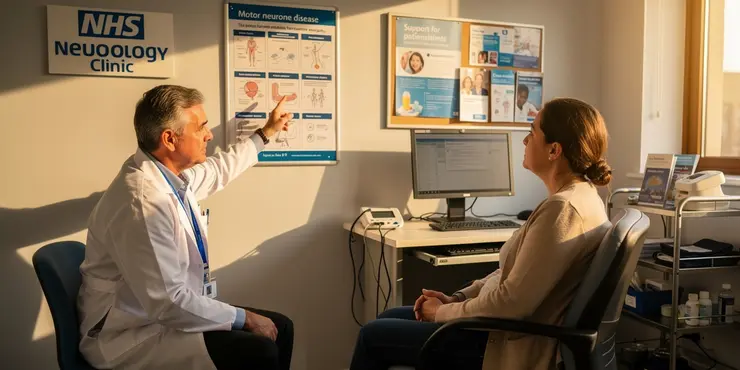
Is there a cure for motor neurone disease?
Relevance: 95%
-
Is motor neurone disease hereditary?
Relevance: 94%
-
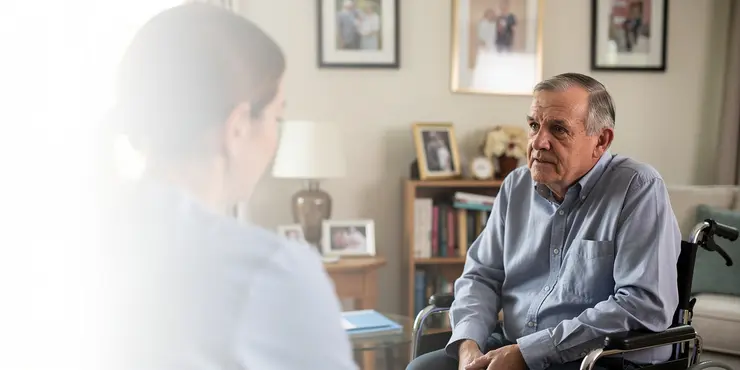
Are there support groups for individuals with motor neurone disease?
Relevance: 92%
-
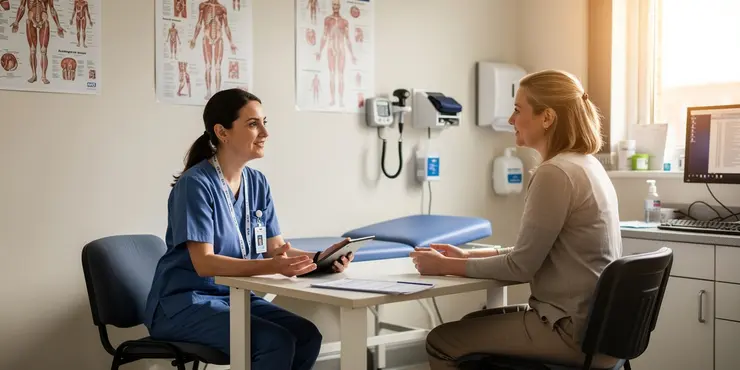
What causes motor neurone disease?
Relevance: 92%
-
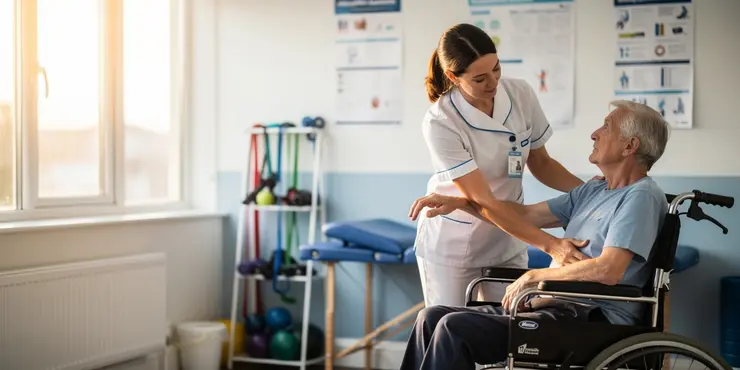
What treatments are available for motor neurone disease?
Relevance: 89%
-
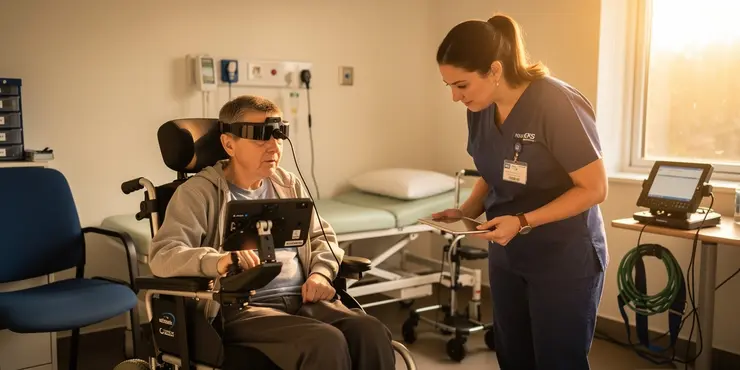
What assistive devices can help people with motor neurone disease?
Relevance: 86%
-
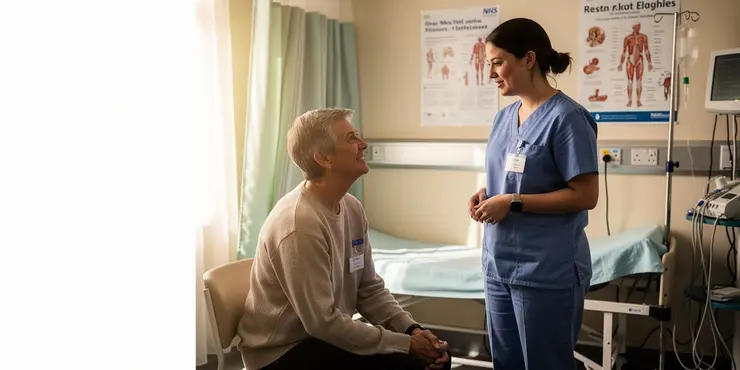
What are the primary symptoms of motor neurone disease?
Relevance: 86%
-
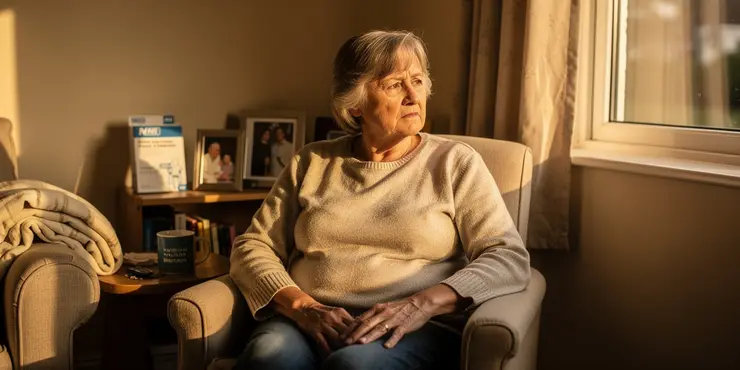
Motor neurone disease Julie's story | NHS
Relevance: 85%
-
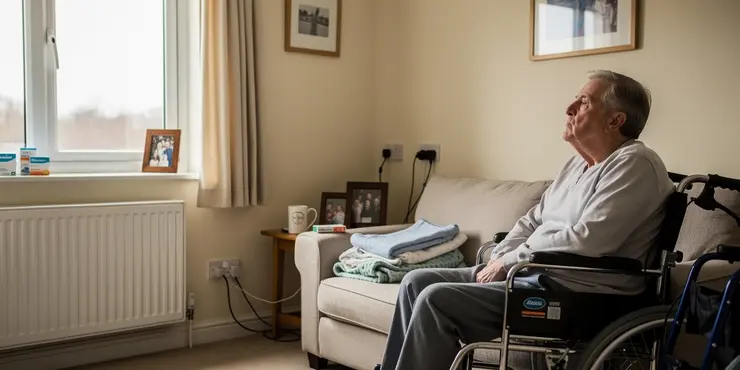
How is breathing affected by motor neurone disease?
Relevance: 85%
-
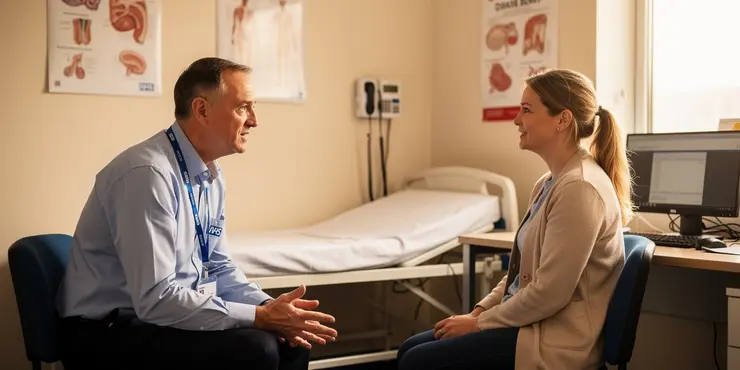
How is motor neurone disease diagnosed?
Relevance: 85%
-
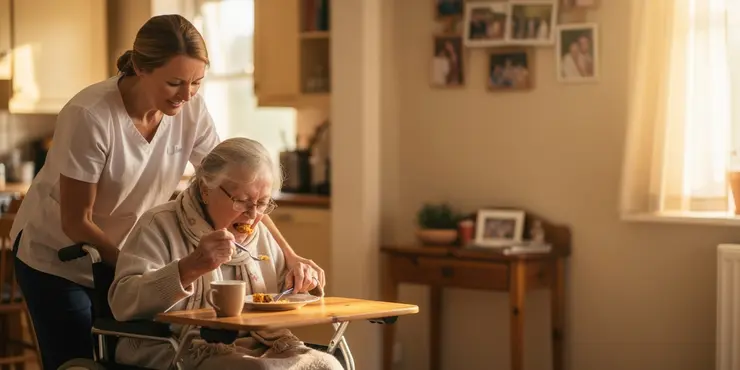
How can caregivers support someone with motor neurone disease?
Relevance: 84%
-
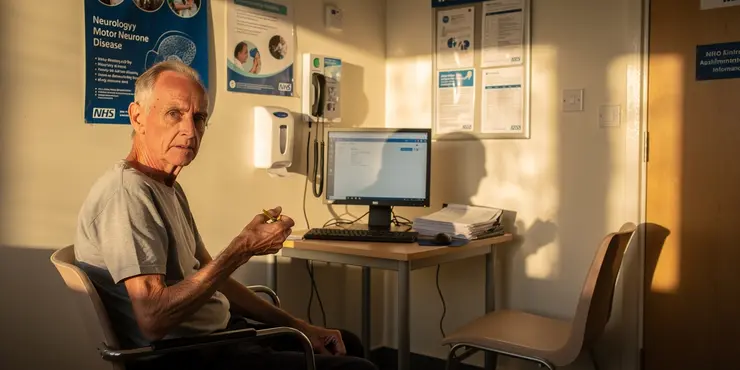
How does motor neurone disease affect the body?
Relevance: 81%
-
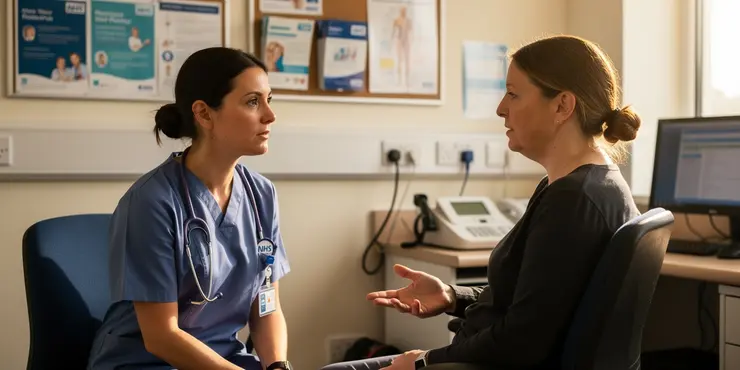
What role do genetics play in motor neurone disease?
Relevance: 80%
-
How does motor neurone disease affect speech?
Relevance: 78%
-
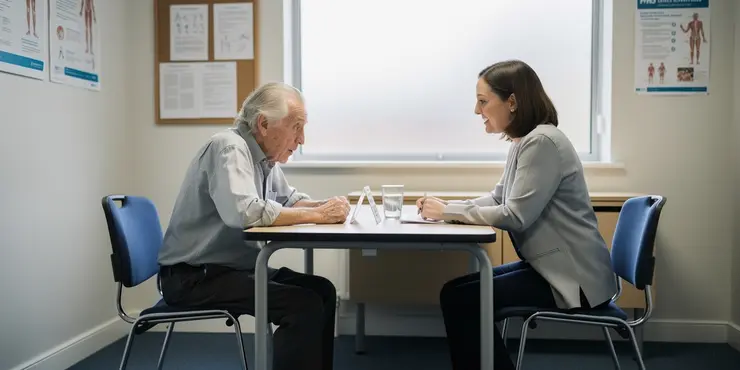
How does motor neurone disease impact swallowing?
Relevance: 78%
-
Can lifestyle changes impact motor neurone disease progression?
Relevance: 77%
-
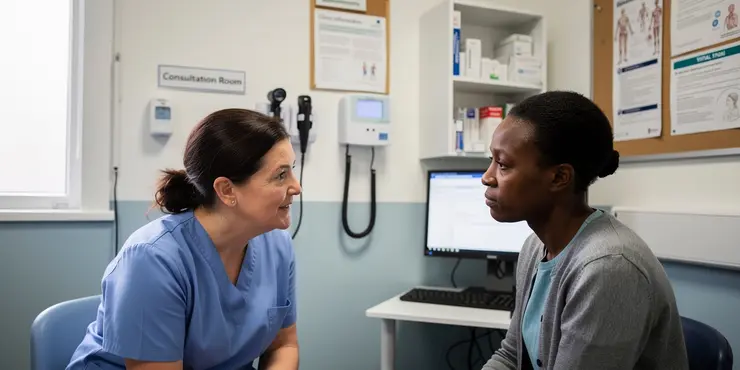
What is the life expectancy after a motor neurone disease diagnosis?
Relevance: 75%
-
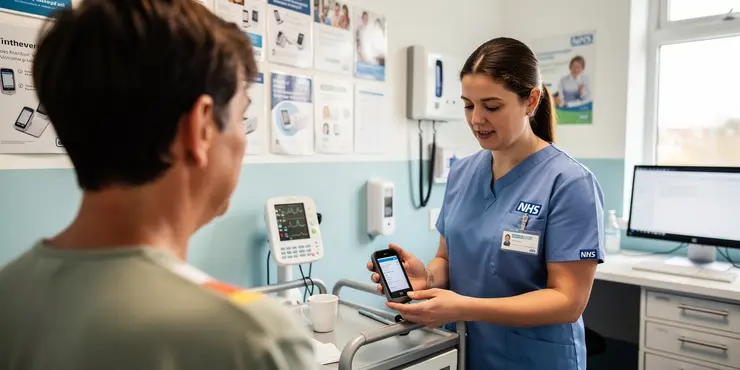
Voice banking service helps people live with motor neurone disease
Relevance: 73%
-
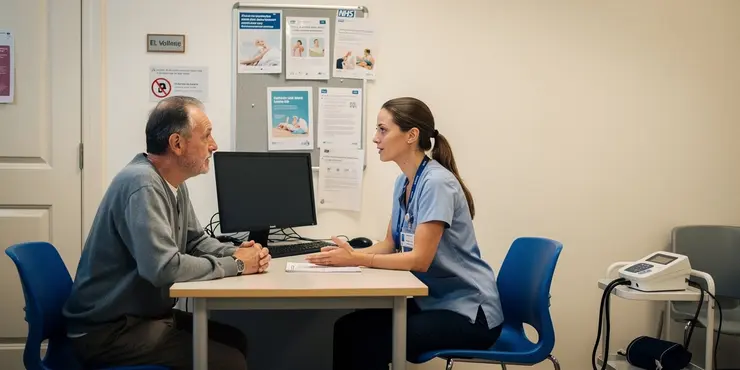
Who is at risk for motor neurone disease?
Relevance: 61%
-
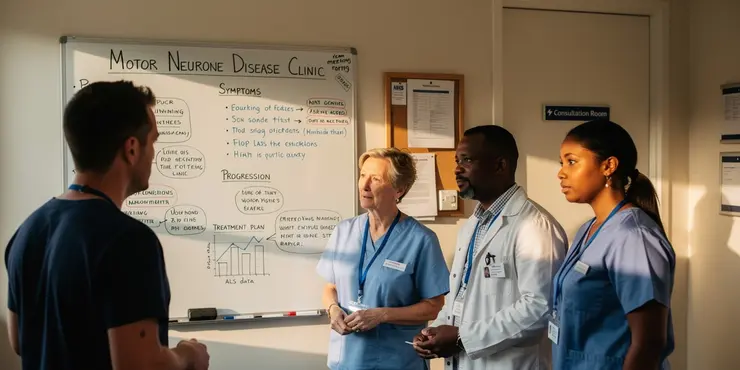
What research is being done on motor neurone disease?
Relevance: 60%
-
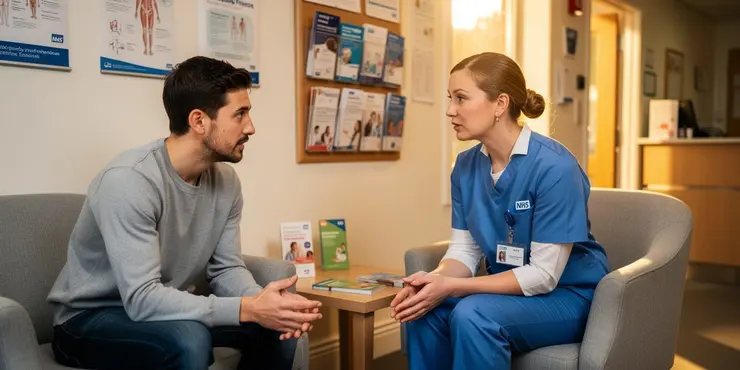
What is MND?
Relevance: 42%
-
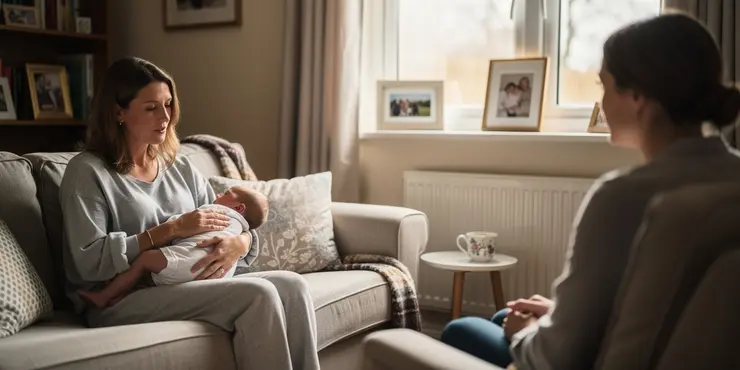
Are there support groups for postnatal depression?
Relevance: 42%
-
How does Huntington's disease affect movement?
Relevance: 41%
-
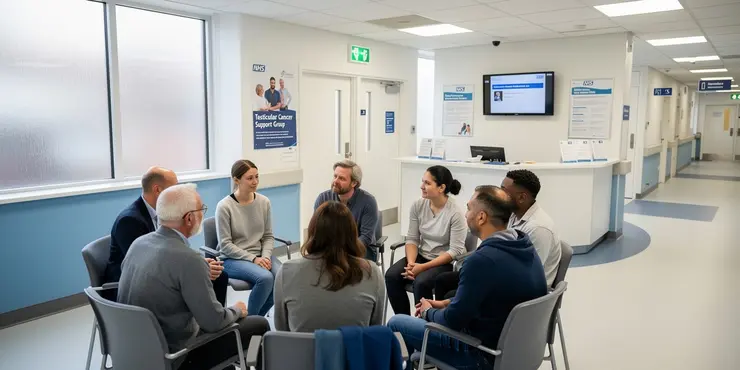
Are there support groups for those affected by testicular cancer?
Relevance: 38%
-
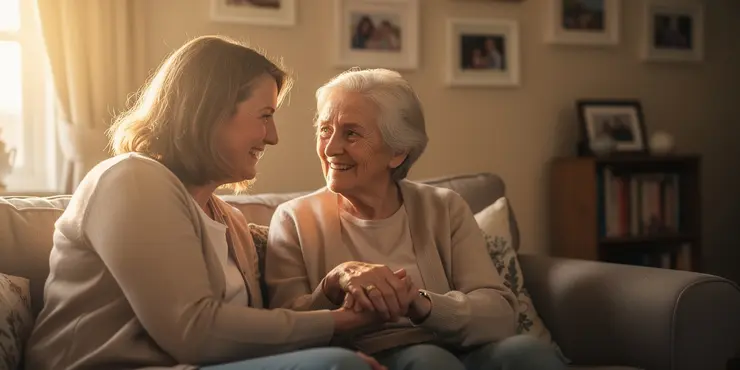
Are there any support groups for people with dementia in the UK?
Relevance: 38%
-
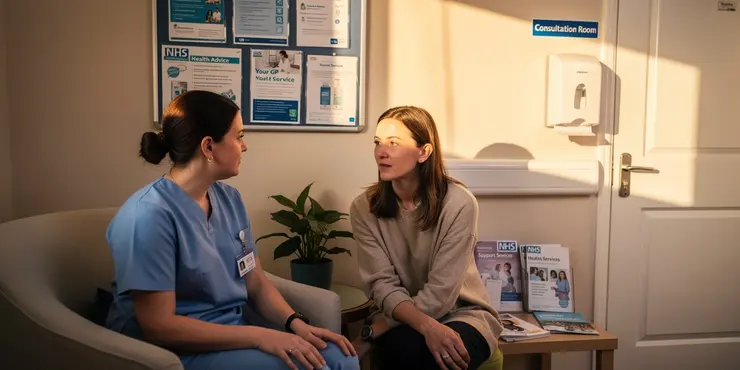
What are peer support groups for community helpers?
Relevance: 38%
-

How can support groups benefit carers of Alzheimer's patients?
Relevance: 37%
-
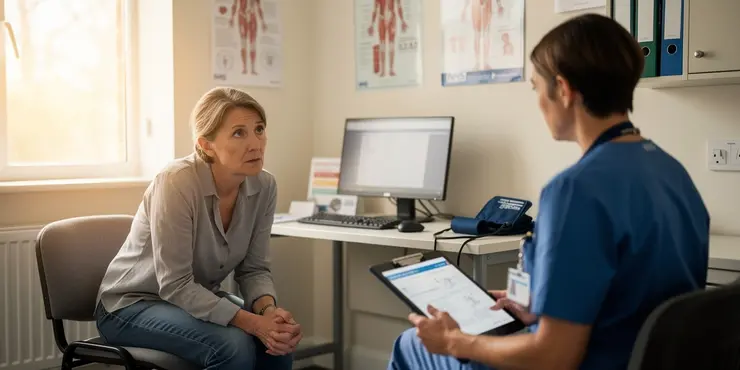
What support is available for people with Crohn's disease in the UK?
Relevance: 37%
-
What is Parkinson's disease?
Relevance: 37%
-
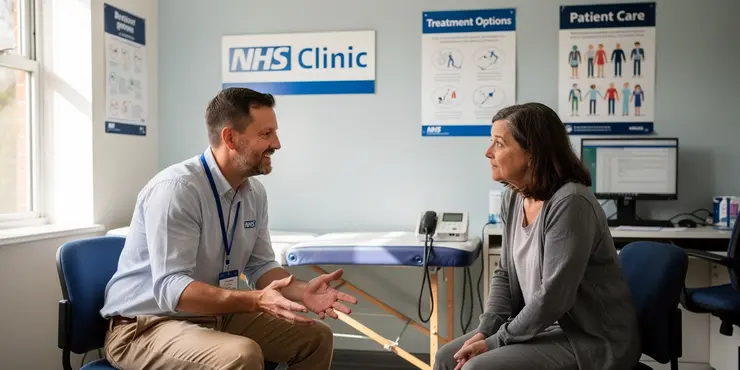
What research is being done on Huntington's disease?
Relevance: 37%
-
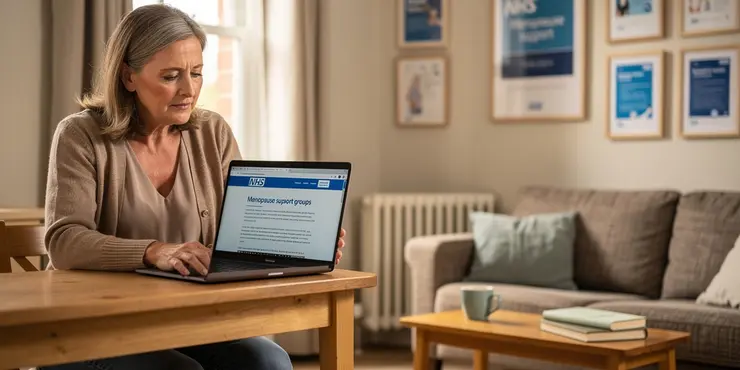
How can I find NHS-recommended menopause support groups online?
Relevance: 35%
-

Is Huntington's disease fatal?
Relevance: 34%
-
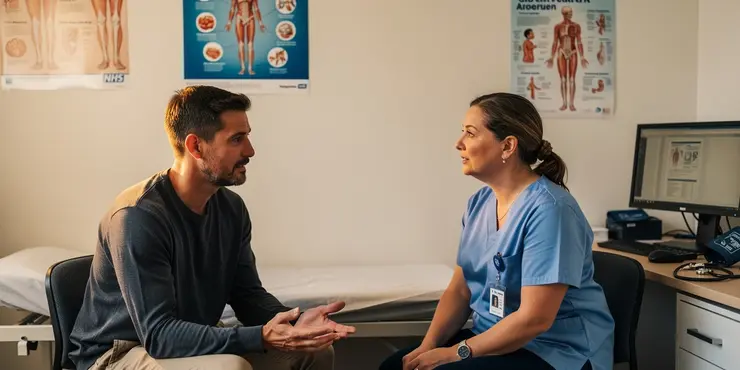
What causes Huntington's disease?
Relevance: 33%
-
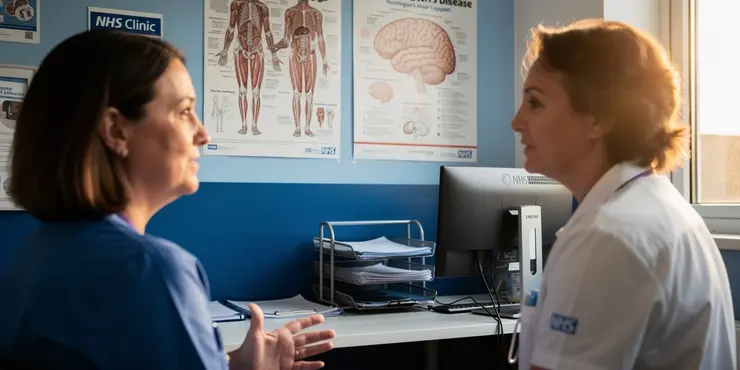
What is Huntington's disease?
Relevance: 32%
-
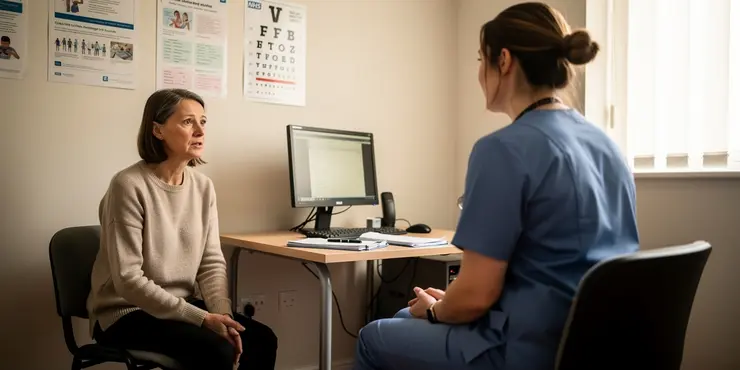
What are the symptoms of Huntington's disease?
Relevance: 31%
-
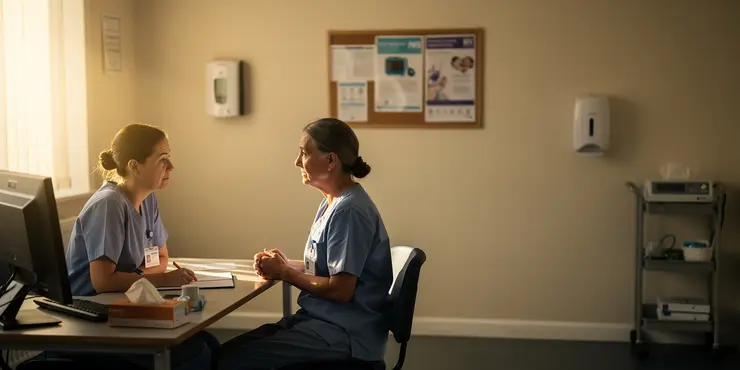
Can Huntington's disease be cured?
Relevance: 30%
-
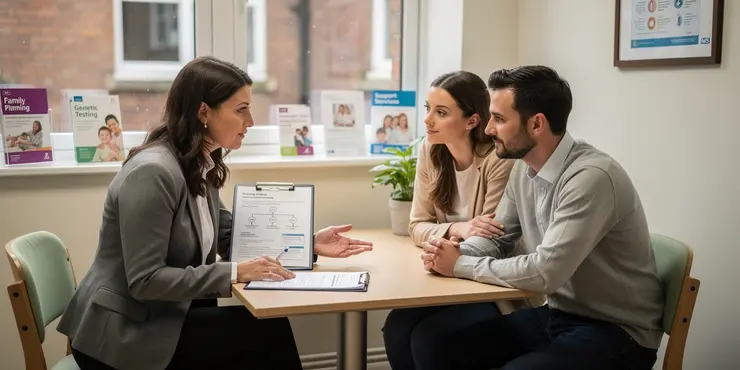
Can Huntington's disease be prevented?
Relevance: 29%
-
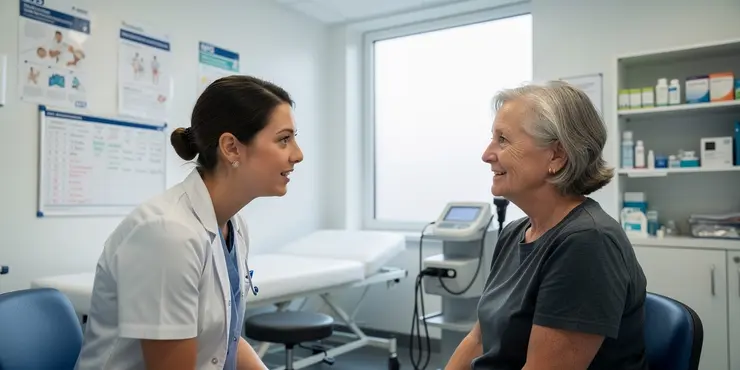
Is there a cure for Crohn's disease?
Relevance: 28%
Understanding Motor Neurone Disease (MND)
Motor Neurone Disease (MND) is a progressive neurological condition that affects the nerves in the brain and spinal cord. It leads to muscle weakness and eventually impacts the ability to move, speak, breathe, and swallow. In the UK, thousands of people live with MND, facing significant challenges in their daily lives. The disease can affect anyone, but it is most commonly diagnosed in people aged 60 to 70. Although there is currently no cure for MND, various treatments and support systems help manage symptoms and improve quality of life.
Benefits of Support Groups for MND
Support groups play a crucial role for individuals with MND and their families. These groups provide a platform for sharing experiences, exchanging information, and offering mutual support. Many people with MND find comfort in connecting with others who understand their situation. Support groups can help reduce feelings of isolation and provide emotional support as members share coping strategies and insights into managing their condition. Additionally, these groups often feature guest speakers, including healthcare professionals, who offer valuable advice and updates on research and treatment options.
Types of Support Groups Available in the UK
In the UK, there are various types of support groups available for individuals living with MND. These include face-to-face meetings, online forums, and telephone-based support. Physical meetings typically occur monthly and are organized by local branches of organizations such as the Motor Neurone Disease Association (MNDA). These gatherings provide opportunities for networking and community building. Online forums offer flexible support options for those who prefer or require remote access, and they enable participants to connect at any time from the comfort of their homes. Telephone support lines also provide immediate assistance and are staffed by trained volunteers or professionals.
The Motor Neurone Disease Association (MNDA)
The MNDA is the leading charity organization supporting people with MND in England, Wales, and Northern Ireland. It offers a wide range of services, including financial assistance, equipment provision, and access to information. The MNDA also operates various support groups across the UK, which are open to anyone affected by MND, including patients, caregivers, and family members. The association's website offers a searchable directory of local support groups, making it easy for individuals to find and join a group in their area.
Conclusion
Support groups are an essential aspect of the care and support network for individuals with Motor Neurone Disease. In the UK, various options are available to help those affected by MND, including face-to-face meetings, online forums, and phone support. These groups offer a sense of community, emotional support, and valuable resources for individuals and families navigating the complexities of the disease. Organizations like the Motor Neurone Disease Association play a pivotal role in facilitating these support networks and empowering individuals with MND to live as independently and comfortably as possible.
Understanding Motor Neurone Disease (MND)
Motor Neurone Disease (MND) is an illness that affects the nerves in our brain and spine. This makes our muscles weak. With time, it gets hard to move, talk, breathe, and swallow. In the UK, many people have MND and face many challenges daily. MND can affect anyone, but it mostly happens to people who are 60 to 70 years old. There is no cure for MND yet, but there are treatments and support to help people feel better and have a good life.
Benefits of Support Groups for MND
Support groups are very helpful for people with MND and their families. These groups are places where people can talk, share their experiences, and help each other. Many people with MND feel better when they meet others who know what it’s like. Support groups help people feel less lonely and give them ideas on how to cope with MND. Sometimes, doctors or experts come to these groups to share useful advice and information about new treatments.
Types of Support Groups Available in the UK
In the UK, there are different kinds of support groups for people with MND. Some meet in person, some are online, and some are over the phone. In-person meetings usually happen once a month and are run by local groups like the Motor Neurone Disease Association (MNDA). These meetings are great for making friends and building a community. Online forums let people get support anytime from home. Phone support is also available, with trained people ready to help.
The Motor Neurone Disease Association (MNDA)
The MNDA is an important charity that helps people with MND in England, Wales, and Northern Ireland. They offer many services, like financial help, equipment, and information. The MNDA runs support groups across the UK for anyone affected by MND, including patients, caregivers, and families. Their website has a list of local support groups, making it easy to find and join one nearby.
Conclusion
Support groups are very important for helping people with Motor Neurone Disease. In the UK, there are many ways to find support, like in-person meetings, online forums, and phone lines. These groups give people a sense of belonging, support, and help with dealing with MND. Groups like the Motor Neurone Disease Association work hard to make sure people with MND can live more comfortably and independently.
Frequently Asked Questions
Useful Links
This website offers general information and is not a substitute for professional advice.
Always seek guidance from qualified professionals.
If you have any medical concerns or need urgent help, contact a healthcare professional or emergency services immediately.
Some of this content was generated with AI assistance. We’ve done our best to keep it accurate, helpful, and human-friendly.
- Ergsy carfully checks the information in the videos we provide here.
- Videos shown by Youtube after a video has completed, have NOT been reviewed by ERGSY.
- To view, click the arrow in centre of video.
- Most of the videos you find here will have subtitles and/or closed captions available.
- You may need to turn these on, and choose your preferred language.
- Go to the video you'd like to watch.
- If closed captions (CC) are available, settings will be visible on the bottom right of the video player.
- To turn on Captions, click settings .
- To turn off Captions, click settings again.
More Items From Ergsy search
-

What is motor neurone disease?
Relevance: 100%
-
Are there different types of motor neurone disease?
Relevance: 97%
-

Is there a cure for motor neurone disease?
Relevance: 95%
-
Is motor neurone disease hereditary?
Relevance: 94%
-

Are there support groups for individuals with motor neurone disease?
Relevance: 92%
-

What causes motor neurone disease?
Relevance: 92%
-

What treatments are available for motor neurone disease?
Relevance: 89%
-

What assistive devices can help people with motor neurone disease?
Relevance: 86%
-

What are the primary symptoms of motor neurone disease?
Relevance: 86%
-

Motor neurone disease Julie's story | NHS
Relevance: 85%
-

How is breathing affected by motor neurone disease?
Relevance: 85%
-

How is motor neurone disease diagnosed?
Relevance: 85%
-

How can caregivers support someone with motor neurone disease?
Relevance: 84%
-

How does motor neurone disease affect the body?
Relevance: 81%
-

What role do genetics play in motor neurone disease?
Relevance: 80%
-
How does motor neurone disease affect speech?
Relevance: 78%
-

How does motor neurone disease impact swallowing?
Relevance: 78%
-
Can lifestyle changes impact motor neurone disease progression?
Relevance: 77%
-

What is the life expectancy after a motor neurone disease diagnosis?
Relevance: 75%
-

Voice banking service helps people live with motor neurone disease
Relevance: 73%
-

Who is at risk for motor neurone disease?
Relevance: 61%
-

What research is being done on motor neurone disease?
Relevance: 60%
-

What is MND?
Relevance: 42%
-

Are there support groups for postnatal depression?
Relevance: 42%
-
How does Huntington's disease affect movement?
Relevance: 41%
-

Are there support groups for those affected by testicular cancer?
Relevance: 38%
-

Are there any support groups for people with dementia in the UK?
Relevance: 38%
-

What are peer support groups for community helpers?
Relevance: 38%
-

How can support groups benefit carers of Alzheimer's patients?
Relevance: 37%
-

What support is available for people with Crohn's disease in the UK?
Relevance: 37%
-
What is Parkinson's disease?
Relevance: 37%
-

What research is being done on Huntington's disease?
Relevance: 37%
-

How can I find NHS-recommended menopause support groups online?
Relevance: 35%
-

Is Huntington's disease fatal?
Relevance: 34%
-

What causes Huntington's disease?
Relevance: 33%
-

What is Huntington's disease?
Relevance: 32%
-

What are the symptoms of Huntington's disease?
Relevance: 31%
-

Can Huntington's disease be cured?
Relevance: 30%
-

Can Huntington's disease be prevented?
Relevance: 29%
-

Is there a cure for Crohn's disease?
Relevance: 28%


